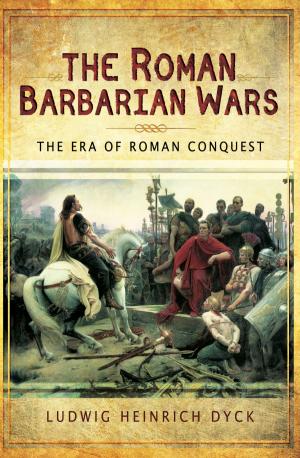Churchill and the Mad Mullah of Somaliland
Betrayal and Redemption 1899-1921
Nonfiction, History, Modern, 19th Century, Military, World War I| Author: | Roy Irons | ISBN: | 9781473831551 |
| Publisher: | Pen and Sword | Publication: | November 4, 2013 |
| Imprint: | Pen and Sword Military | Language: | English |
| Author: | Roy Irons |
| ISBN: | 9781473831551 |
| Publisher: | Pen and Sword |
| Publication: | November 4, 2013 |
| Imprint: | Pen and Sword Military |
| Language: | English |
In the late nineteenth century, the British Empire commanded the seas and possessed a vast Indian Empire, as well as other extensive dominions in South East Asia, Australasia, America and Africa. To secure the trade route to the glittering riches of the orient, the port of Berbera in Somaliland was taken from the feeble grasp of an Egyptian monarch, and to secure that port, treaties were concluded with the fierce and warlike nomad tribes who roamed the inhospitable wastes of the hinterland, unequivocally granting them 'the gracious favour and protection of the Queen'. But there arose in that wilderness a man of deep and unalterable convictions; the Sayyid, the 'Mad Mullah', who utilised his great poetic and oratorical gifts with merciless and unrelenting fury to convince his fellow nomads to follow him in an anti- Christian and anti-colonial crusade. At great expense, four Imperial expeditions were sent to crush him and to support his terrified opponents; four times the military genius of the Sayyid eluded them. It was at this point that the rising voice of Winston Churchill convinced his Liberal colleagues to abandon the expensive contest and retreat to the coast. By this betrayal, one third of the British 'protected' population perished. It wasn't until after the Great War that Churchill, now Minister for both War and Air, as well as a major influence in the rise of Air Power, was able to redeem this betrayal. The part he played in the destruction of the Sayyid's temporal power at this point was substantial, and the preservation of the Royal Air Force was also secured. By unleashing Sir Hugh Trenchard and giving his blessing to a lightning campaign, his original betrayal was considered to be redeemed in part and his honour belatedly and inexpensively restored. In this enthralling volume, Roy Irons brings to life this period of dynamic unrest, drawing together a number of historical accounts of the time as well as an evocative selection of illustrative materials, including maps and portraits of the main players at the forefront of the action. Personalities such as Carton de Wiart, Lord Ismay, and the much decorated Sir John 'Johnny' Gough, VC, KCB, CHG feature, as do the vaunted Camel Corps, in this eminently well-researched narrative account of this eventful and controversial episode of world history. As featured in Essence Magazine.
In the late nineteenth century, the British Empire commanded the seas and possessed a vast Indian Empire, as well as other extensive dominions in South East Asia, Australasia, America and Africa. To secure the trade route to the glittering riches of the orient, the port of Berbera in Somaliland was taken from the feeble grasp of an Egyptian monarch, and to secure that port, treaties were concluded with the fierce and warlike nomad tribes who roamed the inhospitable wastes of the hinterland, unequivocally granting them 'the gracious favour and protection of the Queen'. But there arose in that wilderness a man of deep and unalterable convictions; the Sayyid, the 'Mad Mullah', who utilised his great poetic and oratorical gifts with merciless and unrelenting fury to convince his fellow nomads to follow him in an anti- Christian and anti-colonial crusade. At great expense, four Imperial expeditions were sent to crush him and to support his terrified opponents; four times the military genius of the Sayyid eluded them. It was at this point that the rising voice of Winston Churchill convinced his Liberal colleagues to abandon the expensive contest and retreat to the coast. By this betrayal, one third of the British 'protected' population perished. It wasn't until after the Great War that Churchill, now Minister for both War and Air, as well as a major influence in the rise of Air Power, was able to redeem this betrayal. The part he played in the destruction of the Sayyid's temporal power at this point was substantial, and the preservation of the Royal Air Force was also secured. By unleashing Sir Hugh Trenchard and giving his blessing to a lightning campaign, his original betrayal was considered to be redeemed in part and his honour belatedly and inexpensively restored. In this enthralling volume, Roy Irons brings to life this period of dynamic unrest, drawing together a number of historical accounts of the time as well as an evocative selection of illustrative materials, including maps and portraits of the main players at the forefront of the action. Personalities such as Carton de Wiart, Lord Ismay, and the much decorated Sir John 'Johnny' Gough, VC, KCB, CHG feature, as do the vaunted Camel Corps, in this eminently well-researched narrative account of this eventful and controversial episode of world history. As featured in Essence Magazine.















